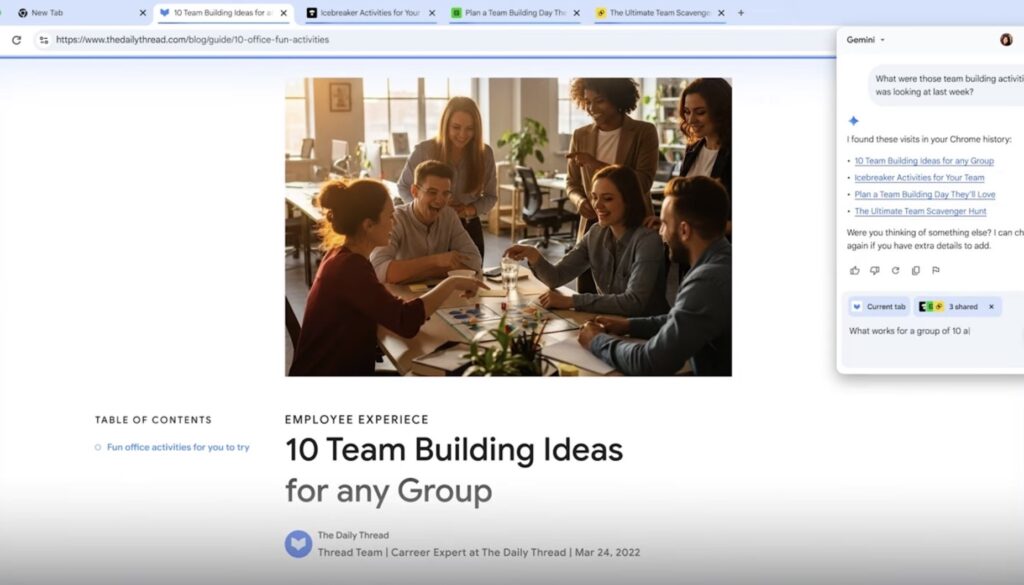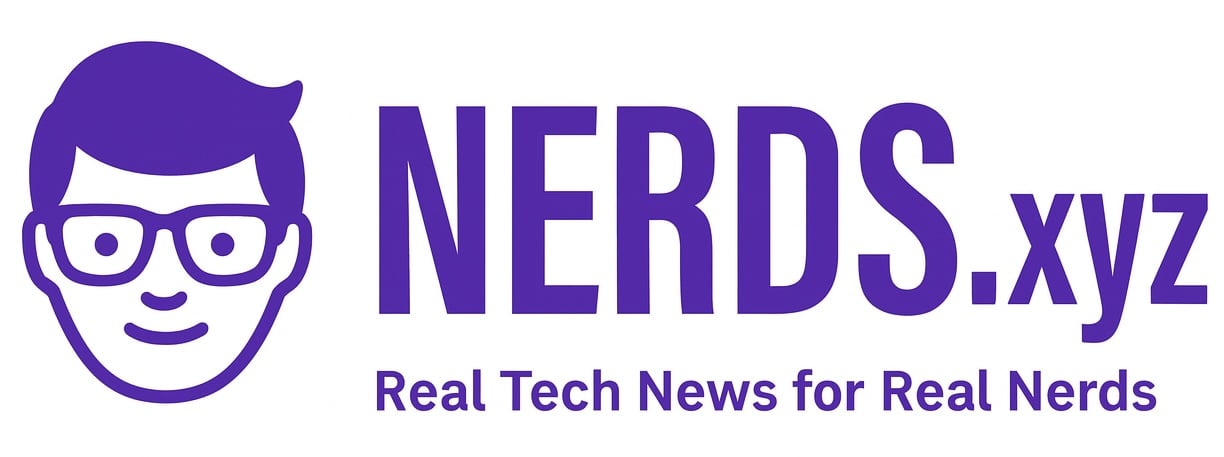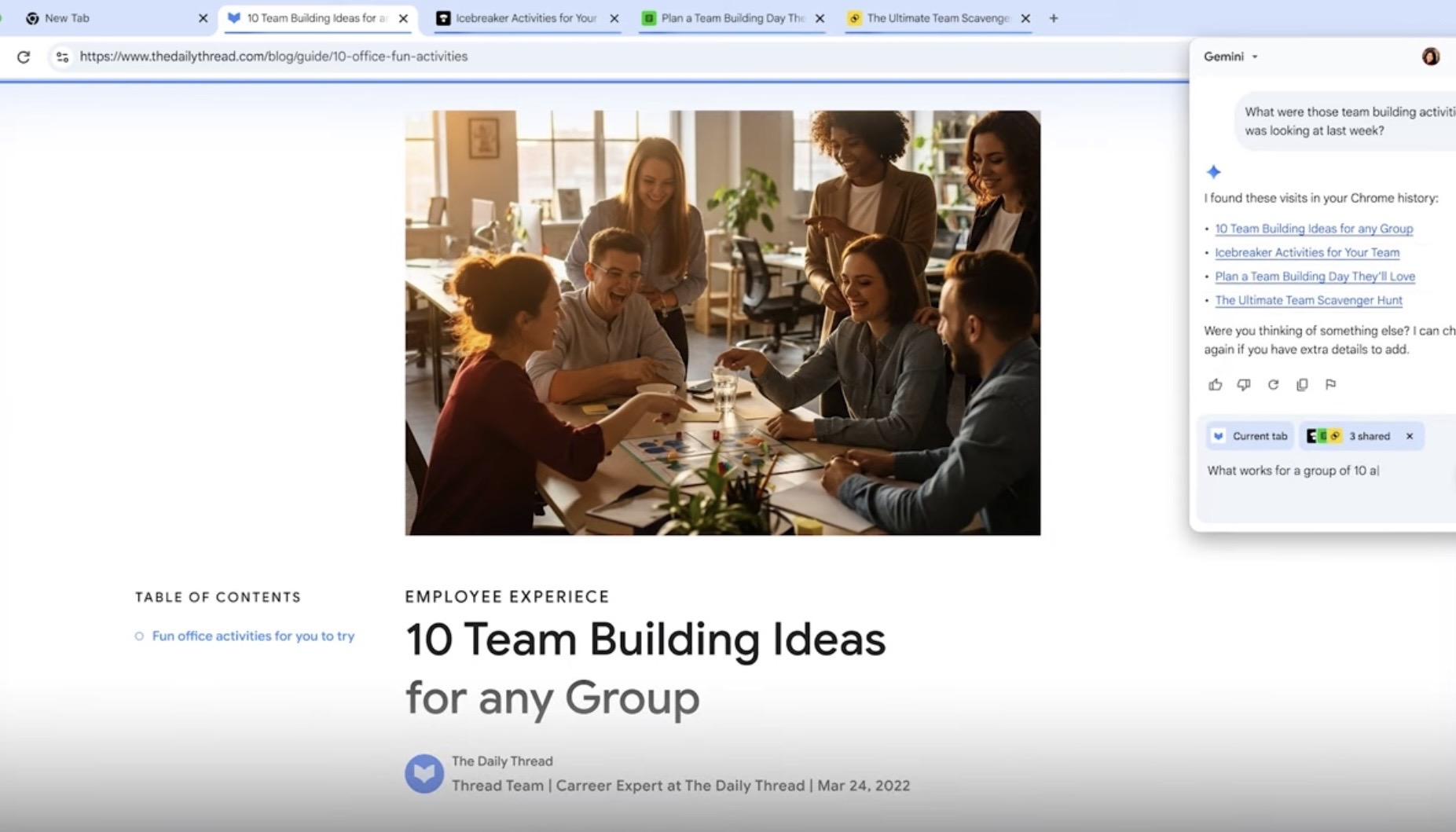
When Chrome first arrived in 2008, it set the standard for speed and security on the web. Now Google is trying to transform the browser again, this time by weaving artificial intelligence into nearly every corner of it.
The big addition is Gemini in Chrome. It is already rolling out to Mac and Windows users in the U.S. and can explain complex topics on a page, summarize across multiple tabs, and even dig into YouTube videos. Mobile users will get it soon on Android and iOS.
Google also plans to give Gemini the ability to handle routine chores, like booking a haircut or ordering groceries. The idea is that you tell Chrome what you want done, and it quietly works through the steps for you. In theory, this could turn a half-hour task into just a few clicks.
The company shared ten ways AI is changing Chrome. Gemini can now summarize across tabs, recall pages you visited before, and work directly with apps like YouTube, Maps, and Calendar. The omnibox will support “AI Mode” for complex questions and offer contextual suggestions based on the page you are viewing.
Safe Browsing now taps Gemini Nano to block scams that trick people with fake viruses or giveaways. Chrome also reduces spammy notifications and uses AI to make permission requests less intrusive. Another update will allow one-click password changes on supported sites like Spotify and Coursera.
On paper, these updates make Chrome far more capable. But I cannot help wondering what this means for privacy. If the browser is reading every page, connecting tabs, and handling personal tasks, how much data is it collecting and where does it go? Some users will embrace the convenience, but others may not be comfortable with an AI that watches so closely.
Google insists that security is a focus. The company says Chrome already prevents billions of scam notifications every day on Android and is using AI to fill passwords more safely, block shady websites, and flag compromised logins.
This is being billed as the biggest upgrade in Chrome’s history, and it certainly changes what a browser is. Instead of being just a window to the web, Chrome is now positioned as a personal assistant. Whether people trust it enough to let it play that role is another matter entirely.


